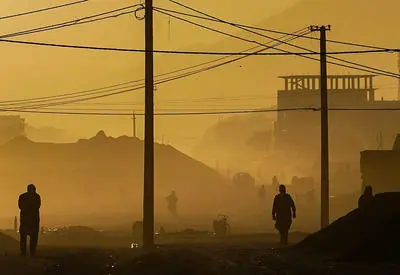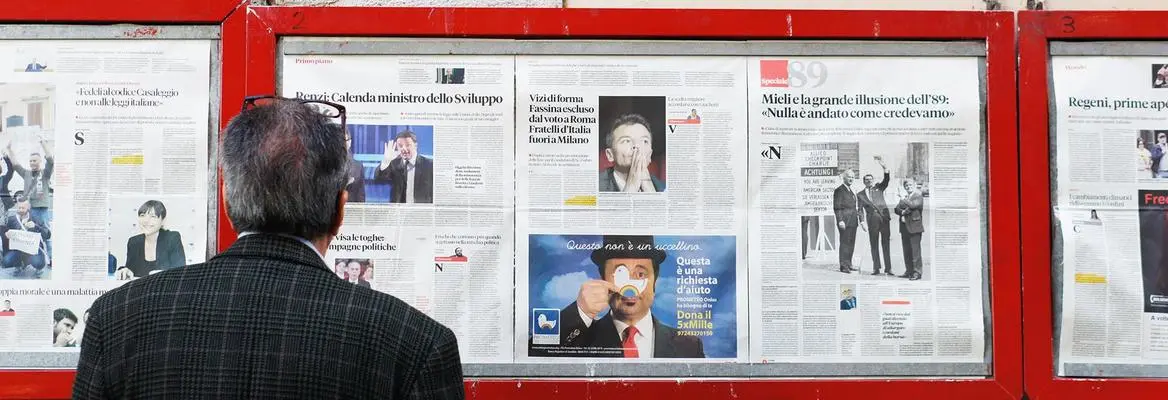Umberto Eco’s quip “There is no news in August” hasn’t really been falsified as much as confirmed this summer. Eco was being ironic - just because the political class goes on holiday in the summer doesn’t mean that big events stop happening. But the unhealthy reliance by journalists on those in power to feed them stories and narratives means that the summer’s political machinations don’t get proper coverage: the plotting of policy, war and terrorism. That’s why no one saw the fall of Kabul coming, writes Peter Jukes.
 SUGGESTED READING
The real reason for leaving Afghanistan
By Hew Strachan
One of the optical illusions that reveal the heavily constructed reality portrayed in modern media is the anomaly of the ‘silly season’ - the summer months when events slow down, and news becomes so scarce that journalists are reduced to seeking out performative absurdities such as skateboarding ducks, or Nigel Farage fishing for asylum seekers in the British channel. Of course, reality goes on regardless, whether it’s the increase in the number of extreme weather events due to global warming, or the shock collapse of the Afghan Government and the return of the Taliban to rule in Kabul. But the notion that ‘no news happens in August’ as Umberto Eco commented, sardonically, reveals how much of our mediated reality is artificial.
SUGGESTED READING
The real reason for leaving Afghanistan
By Hew Strachan
One of the optical illusions that reveal the heavily constructed reality portrayed in modern media is the anomaly of the ‘silly season’ - the summer months when events slow down, and news becomes so scarce that journalists are reduced to seeking out performative absurdities such as skateboarding ducks, or Nigel Farage fishing for asylum seekers in the British channel. Of course, reality goes on regardless, whether it’s the increase in the number of extreme weather events due to global warming, or the shock collapse of the Afghan Government and the return of the Taliban to rule in Kabul. But the notion that ‘no news happens in August’ as Umberto Eco commented, sardonically, reveals how much of our mediated reality is artificial.
It’s an obvious truth, in Britain at least, that as Parliament goes into a long recess, and Ministers, MPs and Lords disappear to their second homes in Tuscany or the Dordogne, the political commentariat also down tools and follows them on holiday. The archaic British system is like an old manufacturing line, with senior lobby correspondents reliant on Government for raw materials, which are then processed by a tertiary industry of pundits and commentators. Between them, they manage to spin out a few yarns of speculation into whitewashed acres of newsprint and pixels. But in summer it goes quiet. Apparently.
The archaic British system is like an old manufacturing line, with senior lobby correspondents reliant on Government for raw materials, which are then processed by a tertiary industry of pundits and commentators.
In fact, it’s just an illusion. It’s based on our implicit bias that the press is there to report on events as they occur, and that it’s focused on the public interest. But invert your thinking, look again with the premise that the media is more likely focused on the private interests of its owners and that “the news” is a carefully curated and largely confected narrative, and one can see that the summer is rich with meaning and unreported news.
As politicians go back to their constituencies, or the Caribbean holiday on some oligarch’s island, politics doesn’t stand still. It ferments in the secrecy and darkness. The political laundromat might be quiet, but that just means new schemes and deals are afoot: new policies are being designed and a rack of fashionable options ready for favoured models to sport at the party conference season.
Summer is when most the news is really happening, if only dissident untamed journalists could get into those parties in the Cotswolds or onto Rupert Murdoch’s yacht. If I could transport myself back to the late 1970s, I’m sure I would have heard rumours of the ‘winter of discontent’ in the summer. You could certainly pick up Boris Johnson’s plan to prorogue Parliament and ‘get Brexit done’ in late July 2019, just before he was elected leader.
It’s only silly season for the public. For the political class, the holidays are the time to be serious.















Join the conversation